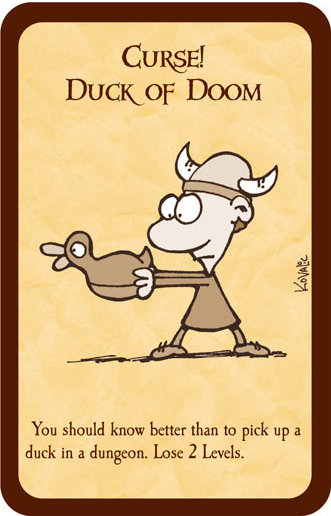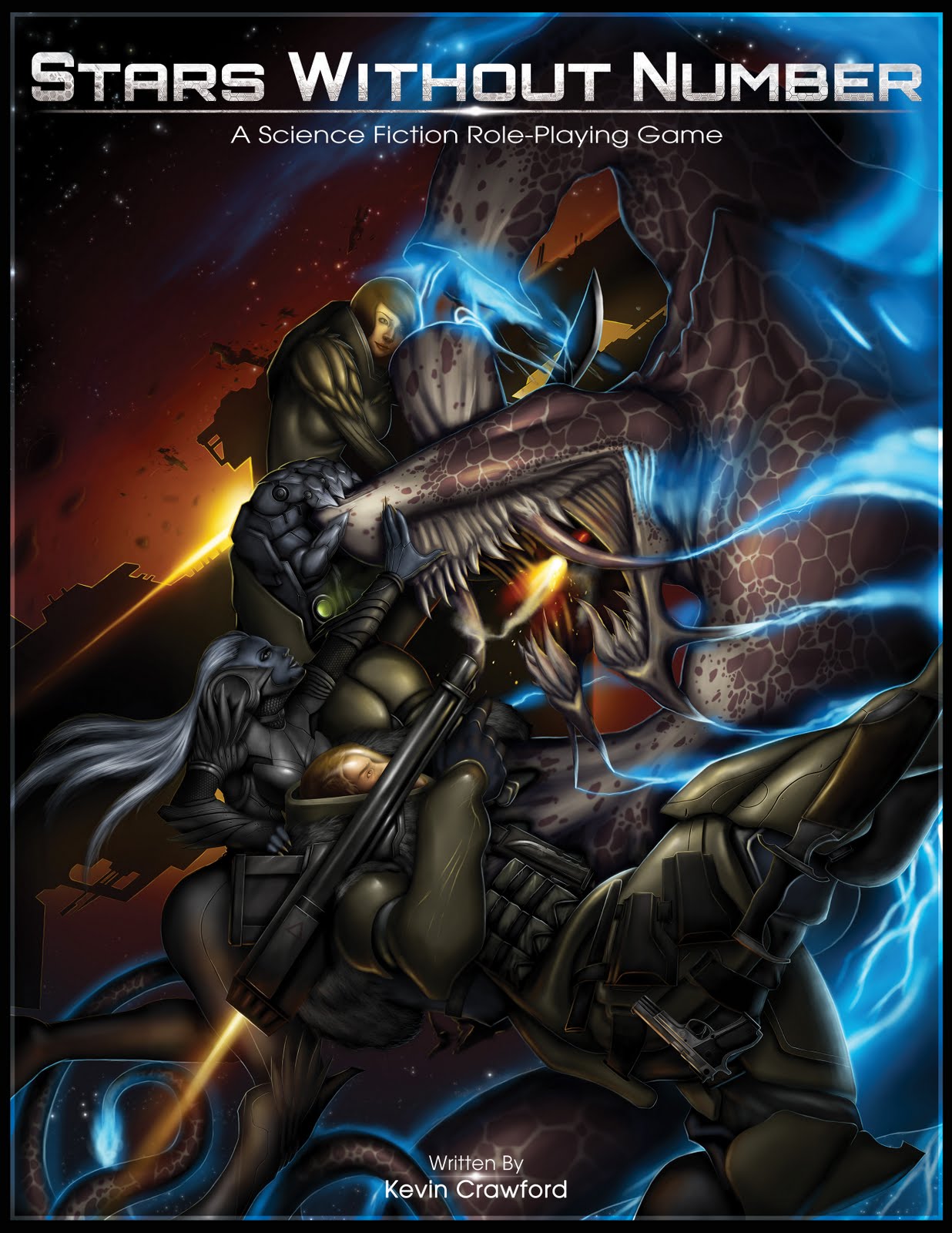I know, I know. This blog is mostly focused on PC games, but to be honest, lately I've not been playing many PC games. The Crew and Swat 4 have been the two I've been playing around with, but nothing at the moment has been holding my attention. Tabletop games on the other hand really do hold my attention. I use the term tabletop to loosely include all non-virtual games. Board games, card games, and pen and paper RPGs are all included. So here's a run down of the three tabletop games that I've really been enjoying.
Munchkin
 Spawned from the mind of Steve Jackson, a game designer who started designing games in the late 1970s, Munchkin uses classic RPG tropes in a card game based around exploring and exploiting a dungeon, combined with a cute and clever art style and writing that makes fun of the source material. The goal is to level up your character to level 10, and is achieved by defeating monsters. With a simple combat system based around getting a higher power number than the target, Munchkin can be picked up and played by just about anyone.
Spawned from the mind of Steve Jackson, a game designer who started designing games in the late 1970s, Munchkin uses classic RPG tropes in a card game based around exploring and exploiting a dungeon, combined with a cute and clever art style and writing that makes fun of the source material. The goal is to level up your character to level 10, and is achieved by defeating monsters. With a simple combat system based around getting a higher power number than the target, Munchkin can be picked up and played by just about anyone.Where Munchkin really shines is the comedy side of it. With cards such as "Sword of Slaying Everything Except Squid", the "Duck of Doom" and "Bribe the GM with Food", you can gather that Munchkin has a sense of humour about itself and the source material it jokes about. Some cards use the literal gender of a player, while others allow you to straight up win the game if you are a certain class. I can safely say that playing Munchkin with a group of friends around a table is some of the best fun I've ever had while gaming.
Apocalypse World
The first ever pen and paper RPG I ever played, Apocalypse World is beautiful in how simple it is. One type of dice, the standard D6, some paper and a pen is all that is required to play AP. A narrative focused game (rather than stat based like D&D) AW allows players to describe their actions to their advantage, then back up what they are doing with a dice roll to either confirm they completed the action, or if they fail, how they failed. AW aimed to make pen and paper RPGs accessible to everyone, and succeeds in doing so in my opinion.
Apocalypse World also succeeds at being easy to "hack" (essentially to rewrite the system to suit a different setting). Where AW is set in a post-apocalyptic wasteland, the version we played was set in the Mass Effect universe and played surprisingly well. One of the more well known hacks is Dungeon World, written by Adam Koebel and Sage LaTorra, which has been commercially successful for both of them. You can find a community updated list of Apocalypse World hacks here.
Stars Without Number
My favorite pen and paper RPG by far. Written by Kevin Crawford, and heavily inspired by the old school renaissance RPGs, Stars Without Number is a stat based, super deadly, sandbox RPG that has one of the most robust world creation tools around. I GM a game of SWN, and have found that its simple take on stats based action is reasonably easy for new players to pick up. My wife, who has never played a tabletop RPG before, was able to easily pick up the game without too many questions at all.
 Where SWN stands out for me is in world building. Creating a sector involves a lot of rolling (or using this amazing tool at swn.emichron.com), but once created, you can involve the players in writing the history of the sector as they pick home planets and decide on their own backstory. It has tables for rolling alien races, religions, encounters, missions and NPCs, making it easy for new GMs (like myself), to create worlds that feel unique. There is also a whole "mini-game" that GMs get to indulge in: the faction turns. GMs get to create factions with their own goals, agendas and resources, then pit them against each other between real life sessions, progressing the story around the players so that the world feels alive.
Where SWN stands out for me is in world building. Creating a sector involves a lot of rolling (or using this amazing tool at swn.emichron.com), but once created, you can involve the players in writing the history of the sector as they pick home planets and decide on their own backstory. It has tables for rolling alien races, religions, encounters, missions and NPCs, making it easy for new GMs (like myself), to create worlds that feel unique. There is also a whole "mini-game" that GMs get to indulge in: the faction turns. GMs get to create factions with their own goals, agendas and resources, then pit them against each other between real life sessions, progressing the story around the players so that the world feels alive.
SWN definitely scratches an itch for me. The creative itch of creating worlds that players can then go to and have adventures on. Worlds that feel unique to each other and have history, filled with organizations that have goals that don't rely on the players to progress. It's a really well written system.
If you want to try a tabletop game out, its as easy as getting a copy of the game, a few friends and a free night. I definitely feel that tabletop games are making a big comeback right now, and look forward to a time when they become as popular as virtual games as well.
As always though, and no matter how you do it,
GAME ON!
No comments:
Post a Comment